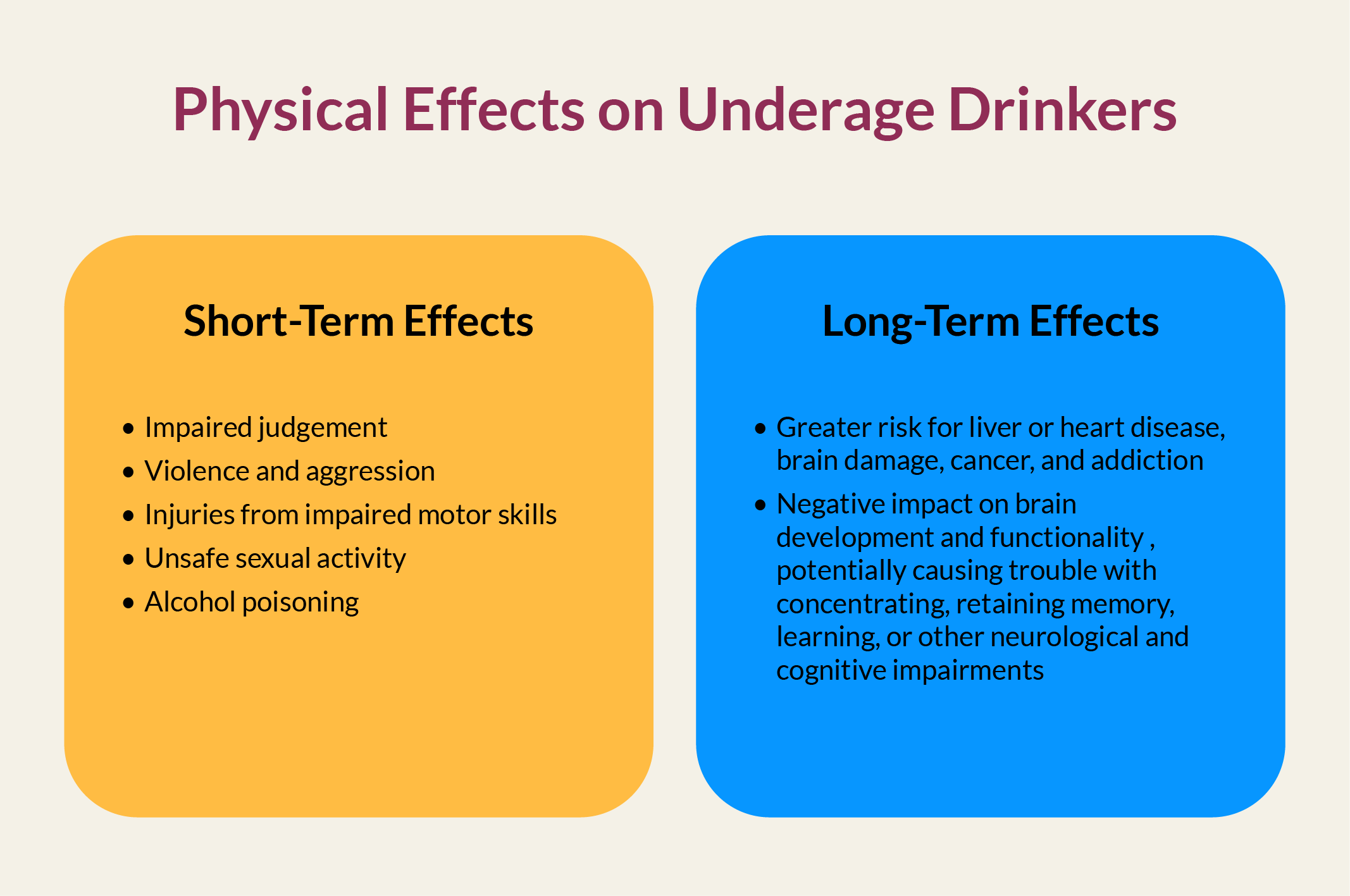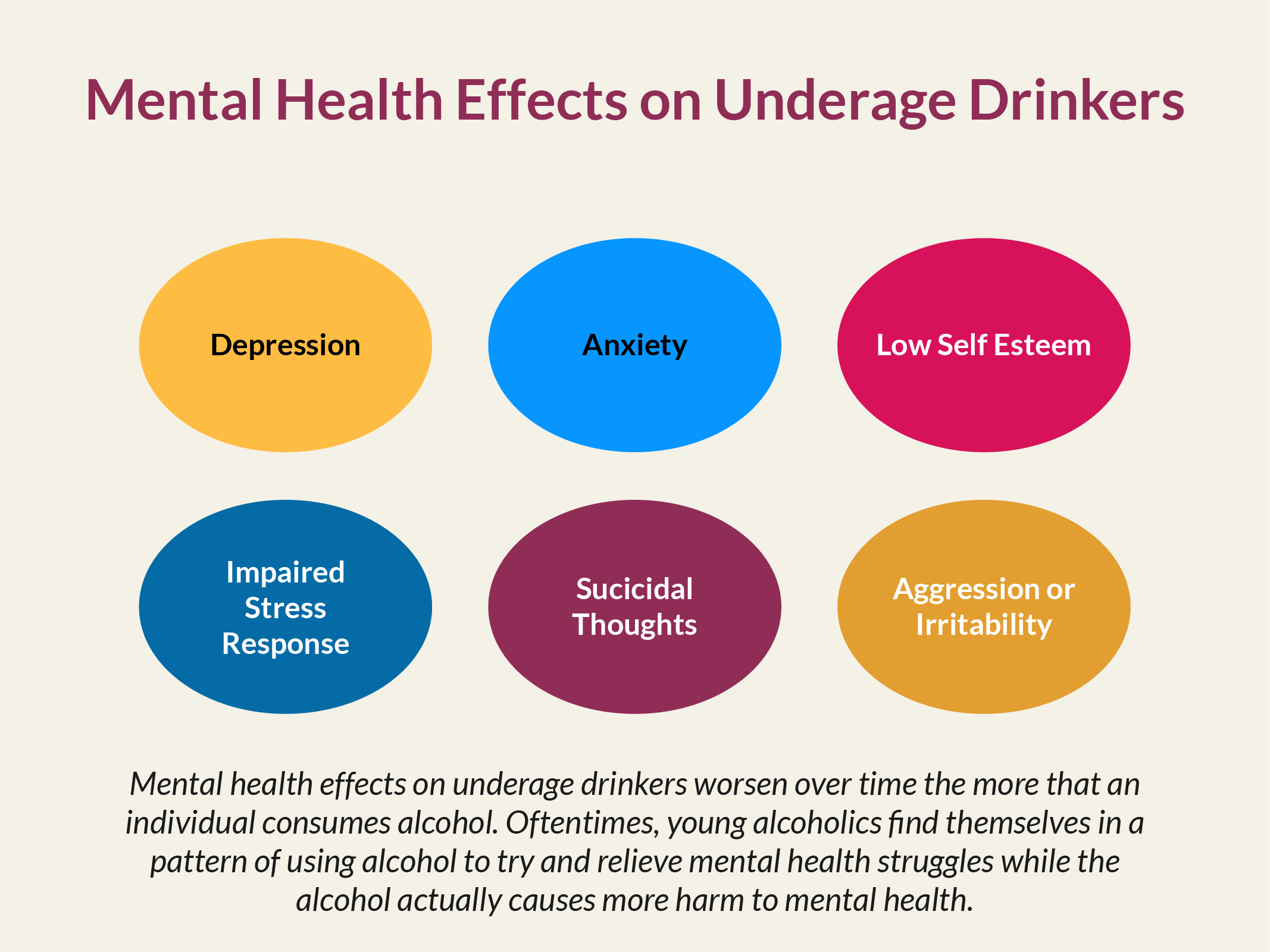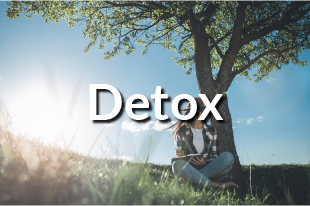Underage drinking is defined as any person who drinks under the legal drinking age. While the legal drinking age changes depending on what country you live in, the U.S. has a minimum legal drinking age of 21. Yet, there are many youths that consume alcohol before that time comes.
Underage drinking can be hard to detect. Oftentimes, it’s done discreetly without adults knowing. So, if that drinking becomes a serious addiction, it may not always be recognizable to others.
Underage Drinking Statistics
In the U.S., approximately 31.1% of youth between ages 12 to 20 have consumed alcohol. This amounts to 12.6 million underage drinkers. Of this amount, nearly 28% had reportedly consumed alcohol in the past year. In the 2022 Florida State Report, 34.8% of youth between 18-20 drank alcohol in May of that year alone. Even more concerning, 20.6% reported binge drinking from that group.
The concern with underage drinking statistics is that it does not fully reflect the grand scope of underage people who drink. There are plenty of cases that are left uncounted, as underage drinking is illegal and, therefore, often done in secret.
Especially with youth, social drinking can often lead to the risk of binge drinking. Parties and other social settings often encourage drinking alcohol in mass quantities. Those who are more susceptible to addiction suffer as a result. If you know someone who suffers from underage alcohol addiction, there are plenty of resources to help. Behavioral Health Centers offers outpatient, inpatient, and detox programs for those suffering from alcoholism.
Alcohol Minimum Age
The minimum legal drinking age (MLDA) in the U.S. is 21. MLDA laws are put in place to protect the safety of young people as well as those around them. Underage drinking can have serious effects on developing brains. In addition, drinking alcohol leads to judgment impairment. Because of this, young people who drink are more susceptible to putting themselves in harm’s way (drunk driving, for example) or consuming more than what is safe for one’s body.
According to the CDC, 4,000 people die from underage drinking each year. These deaths can also happen indirectly as a result of the impaired judgment, motor skills, and other harmful physical effects of alcohol.
Consequences of Underage Drinking
The consequences of underage drinking can be more severe than those of older alcoholics. It begins with the amount that young people drink. Alcohol is often consumed socially for young people. In addition, those social settings usually encourage heavy drinking. For example, college parties encourage “drinking games” in which young people are encouraged to drink a certain amount in accordance with the game rules. This often leads to binge drinking, exacerbating the effects of alcohol by consuming large quantities in a short amount of time.

There are both physical and mental consequences for underage drinking. Alcohol leads to impaired judgment, which can cause a slew of problems socially while also putting an individual at risk of harm.
There are also legal consequences of underage drinking. In all 50 states, the legal drinking age is 21. Anyone under that age who consumes alcohol is at risk for chargeable offenses. Drunk driving causes an even worse issue for those under 21. Each state has their own laws when it comes to drunk driving. With that, it is also dependent on the amount of risk or damage caused by the drunk driving.
Physical Affects on Underage Drinkers
Underage drinkers are at risk of both short-term and long-term health effects. In the short-term, this includes impaired judgment, violence and aggression, injuries sustained from impaired motor skills, unsafe sexual activity, and alcohol poisoning. Long-term, alcohol impacts underage drinkers by putting them at greater risk for liver and heart disease, brain damage, cancer, and addiction.

How Does Alcohol Affect the Brain?
Underage drinking has a worse impact on the brain than older drinkers. This is because the brain is still developing until around age 25. Alcohol can have a serious impact on brain development and functionality. Over time, the more one consumes alcohol, the more damage it can cause to the brain.
When brain function is impaired by alcohol, it can cause issues like trouble concentrating, retaining memory, learning, or other neurological and cognitive impairments.
Mental Health Affects on Underage Drinkers
Mental health affects on underage drinkers worsen over time the more that an individual consumes alcohol. For those suffering with addiction, mental health can get worse and worse. Oftentimes, young alcoholics find themselves in a pattern of using alcohol to try and relieve mental health struggles while the alcohol actually causes more harm to mental health.
Common mental health effects include:
- Depression
- Anxiety
- Low self esteem
- Impaired stress response
- Suicidal thoughts
- Aggression or irritability
While there isn’t a specific statistic to show how many underage drinkers suffer from mental health directly because of drinking, studies have shown a correlation between the two. Individuals with alcohol use disorder (AUD) tend to have a higher prevalence of mental health disorders. For this reason, Behavioral Health Centers offer treatment programs for co-occurring mental health disorders alongside the treatment programs for alcohol addiction.

How to Talk to a Teen About Alcohol
Education can play a crucial role in deterring teens from consuming alcohol underage. This can protect them from the risk of developing alcohol addiction over time. It can also help teens suffering from alcohol abuse understand the seriousness of their alcohol consumption. This is the first step in them getting help if there is an addiction.
Here are some tips for talking to a teen about alcohol:
- Teach the negative effects. While not always a deterrent, anyone is less likely to do something that they know is bad for them. Teaching the physical effects and mental health effects of alcohol can help prevent consumption or overconsumption.
- Talk about stress. Stress and other negative mental health struggles common amongst teens pose a major risk when it comes to drinking. The more you can help a teen alleviate stress, the less likely they may be to use alcohol to relieve their negative emotions.
- Be supportive. Encourage activities, academics, or other parts of their lives that help steer them away from the pressures of drinking alcohol.
- Be supportive – after drinking. Be a beacon of support to a teen struggling with alcohol addiction. Encourage them to seek treatment, host an intervention, or provide support while they are in a detox or treatment program.
How Parents and Caregivers Can Support Through Recovery
Supporting a teenager through recovery from alcohol addiction is one of the most challenging and meaningful roles a parent can play. Recovery is a journey—not just for the teen, but for the entire family. Here’s how a parent can show up with love, patience, and strength:
- Educate yourself: Learn about how alcohol affects the teenage brain, what recovery entails, and the challenges your teen may face. This helps reduce judgment and increase empathy. Knowledge also equips you to identify relapse signs and communicate more effectively.
- Create a safe, supportive environment: Teens in recovery need stability. That means a home free of alcohol, clear and healthy boundaries, and routines that encourage structure. Support doesn’t mean avoiding accountability—it means creating a space where your teen feels safe to be honest and supported in their struggle.
- Be present, not perfect: Your teen doesn’t need you to have all the answers. What they need most is your presence—consistent, patient, and loving. Ask how they’re feeling. Listen without jumping in to fix. Validate their emotions, even when you don’t fully understand them.
- Encourage professional support: Recovery should not fall entirely on your shoulders. Encourage (and help facilitate) ongoing therapy, support groups (like AA or teen-focused groups), and medical care if necessary. Be part of family therapy if offered—it can help everyone grow together.
If you know someone who is suffering from alcohol addiction and needs help, contact Behavioral Health Centers at 855-299-4472.









